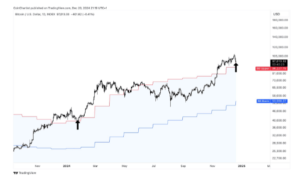
When Jeffrey Wang posted Monday to X asking if anyone wanted to go in on an order of fancy-but-affordable office nap pods, he didn’t expect the post to go viral. He said so many others wanted in, he could have ordered over 100 units.
“I had way too many people that I could handle,” Wang, cofounder of AI research startup Exa Labs, told TechCrunch. “I wanted to order two nap pods for ourselves, and see how they turned out. I had 100-plus demand.”
The post didn’t just hit a nerve with other X users who wanted a nap at work. Some people joked about the hygiene of sharing a bed with office mates. One replied, “The last thing I want to do is share bedsheets with my software developer coworkers.”
Many admired the particular features of these nap pods, or applauded the whole idea of office napping. “every modern office should have one no different than napping on a 15 hour flight some task require the better inference that rem sleep gets you [stet]” responded another.
A few pointed out the more obvious question. Why would an employer expect people to sleep in the office instead of go home? Or as one post responder put it: “Nothing is a bigger red flag that [stet] a potential employer showing off their ‘nap pods.’ I’d be outta there.”
The answer is simple: Silicon Valley startup hustle culture is back, especially in Cerebral Valley, the area of San Francisco filled with early-stage AI startups, often founded and staffed with 20-somethings who make their companies their whole lives. Hustle culture went out of favor in the post pandemic years, when people had moved away from both their offices and San Francisco.
But Hacker houses in San Francisco are popular again. And Cerebral Valley is its own cultural phenom, where those who believe in the future of AI (or fear it) live in such houses and go the same parties.
In the case of Exa Labs, the need for nap pods is a natural extension of its hacker house history. Exa is a 10-person startup that was, until a few weeks ago, in such a house, where co-workers of tiny companies work and live together.
“Like a lot of companies in that area, we worked out of our house. We converted two bedrooms into a big office,” Wang said, adding that everyone worked, hung out, ate together. “And that scaled to like nine people.”
So the nap pods maintain employees’ ability to stop work and sleep, rather than the idea that “employees are slaves,” he said.
“We live in a world where you don’t always get perfect sleep. As much as you prioritize it, sometimes you get a bad night,” Wang said. “If people are tired, they should be able to take a nap. Sleep is basic for productivity.”
But he also admits that, in his view as a founder, startup life requires an all-in commitment.
“Startup life is not for everyone. My co-founder and I went to Harvard and experienced, like, really, really hard grueling semesters,” he said. “But this is something on another level, you know? This startup thing is, like, way harder than I ever anticipated.”
The company is a Y Combinator-graduate that trains LLM models to perform search functions when they need to access sources of data, or the internet. Wang says its offering is being used by about 100 paying customers, and tens of thousands of developers, ranging from other AI startups to researchers and AI labs.
Employees at Exa Labs are “well paid” Wang said, and have equity. So the company’s attitude is, “if you’re not in, you’re out,” he says. “Maybe at some startups, it’s okay for the company to not be your main priority in life, but like, definitely not at a high-growth one.”
That translates into long hours and, if not living at the office, then at least napping there. As the saying goes, “Code, sleep, repeat.”
As someone who has covered the ups and downs of startups for many years, I can say definitively that there comes a time in a growing company’s life when such hustle culture has to be toned down, or what the company is really doing is poor project and employee management.
The time for reasonable work hour expectations should come when hiring has grown beyond the ability to dish out handsome early-employee equity; or at a size when more employment laws apply. Or simply when the team starts adding people with families who want to go home to them every night.
As for clean sheets in Exa’s nap pods, that won’t be a problem, Wang says. “We had a toga party to celebrate a rebrand and we bought 30-40 sheets. We have plenty of sheets.”





